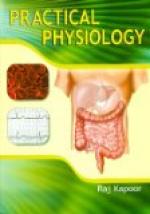With narcotic poisoning, the symptoms come on more slowly. After a time there is drowsiness, which gradually increases until there is a profound sleep or stupor, from which the patient can be aroused only with great difficulty. There are some substances which possess both the irritant and narcotic properties and in which the symptoms are of a mixed character.
391. Treatment of Poisoning. An antidote is a substance which will either combine with a poison to render it harmless, or which will have a directly opposite effect upon the body, thus neutralizing the effect of the poison. Hence in treatment of poisoning the first thing to do, if you know the special poison, is to give its antidote at once.
If the poison is unknown, and there is any delay in obtaining the antidote, the first thing to do is to remove the poison from the stomach. Therefore cause vomiting as quickly as possible. This may be done by an emetic given as follows: Stir a tablespoonful of mustard or of common salt in a glass of warm water and make the patient swallow the whole. It will usually be vomited in a few moments. If mustard or salt is not at hand, compel the patient to drink lukewarm water very freely until vomiting occurs.
Vomiting may be hastened by thrusting the forefinger down the throat. Two teaspoonfuls of the syrup of ipecac, or a heaping teaspoonful of powdered ipecac taken in a cup of warm water, make an efficient emetic, especially if followed with large amounts of warm water.
It is to be remembered that in some poisons, as certain acids and alkalies, no emetic should be given. Again, for certain poisons (except in case of arsenic) causing local irritation, but which also affect the system at large, no emetic should be given.
392. Reference Table of Common Poisons; Prominent Symptoms; Antidotes and Treatment. The common poisons with their leading symptoms, treatment, and antidotes, may be conveniently arranged for easy reference in the form of a table.
It is to be remembered, of course, that a complete mastery of the table of poisons, as set forth on the two following pages, is really a physician’s business. At the same time, no one of fair education should neglect to learn a few of the essential things to do in accidental or intentional poisoning.
A Table of the More Common Poisons,
With their prominent symptoms, antidotes, and treatment.
Poison Prominent Symptoms Antidotes and Treatment
Strong Acids:
Muriatic, Burning sensation
in No emetic Saleratus;
Nitric, mouth, throat, and chalk;
soap; plaster from
Sulphuric (vitriol), stomach; blisters the
wall; lime; magnesia;
Oxalic. about mouth; vomiting; baking
soda (3 or 4
great weakness teaspoonfuls
in a glass of
water).
Alkalies:
Caustic potash and Burning sensation in No emetic Olive oil soda, the parts; severe pain freely; lemon juice, vinegar; Ammonia, in stomach; vomiting; melted butter and vaseline; Lye, difficulty in thick cream. Pearlash, swallowing; cold skin; Saltpeter. weak pulse.
Arsenic:




